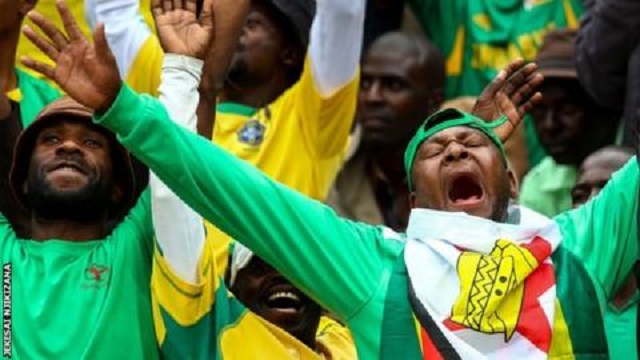EDITORIAL COMMENT: Zifa, PSL and clubs must work together to develop soccer

2017 has got to rank as one of the most challenging domestic football seasons for administrators and the fans.
Besides most match days being affected by low attendances, bad officiating and drab performances, violence and hooliganism periodically reared its ugly head to further soil the already battered image of the local game.
Gone are the days when local football was a family sport, with parents taking their children for an afternoon of entertainment, particularly in matches involving the country’s two biggest teams Dynamos and Highlanders.
Barbourfields and Rufaro stadiums now resemble huge crime scenes whenever these two giants clash. Extra police details were hired to keep the peace, but the mere sight of water cannons and vicious dogs they depend on is a sign that all is not well in domestic football. Despite the heavy police presence, violence and hooligans almost always emerge triumphant over the “beautiful game”.
But why was there more trouble than entertainment at our stadiums in 2017? Unfortunately, none among the football stakeholders is not guilty of contributing to the acute decline in our football standards and degenerating behaviour of fans.
Problems were not only confined to the terraces, but could also be found on the field of play, the dugout and in the boardrooms.
We thought the enforcement of qualified coaches would improve our game, but the local game was an eyesore.
What was evident throughout the season is that Zimbabwean football is badly run, right from the national association Zifa to individual clubs.
On most occasions, referees spoiled potentially entertaining matches with their poor officiating, which triggered hooligans to ignite violence, resulting in unnecessary abandonment of games.
Unfortunately, the Zifa referees’ committee continued to appoint tainted match officials to handle crucial matches, raising tensions between the national association and clubs. This unhealthy relationship continued to be cultivated throughout the season causing more disturbances.
The officiating was so bad that one was left wondering if our referees are professionals or they were following instructions to frustrate certain teams. The Zifa referees’ committee even failed to salvage its tattered credibility in the last footballing moment of the season, when it shockingly named Ruzive Ruzive as Referee of the Year ahead of Nomore Musundire.
Ruzive was at the centre of some embarrassing decisions in a number of matches that he handled, while Musundire displayed some semblance of professionalism that should bind all match officials.
While the referees’ shortcomings were well documented, on the field players didn’t evoke fans’ passion. If the truth be told, sports scribes came up with a list of 11 Soccer Stars simply because they had to, otherwise very few are deserving of that accolade. Simply put, they had to come up with those that were better than the rest, but not soccer stars because most are just not stars.
Premier Soccer League chief executive officer Kennedy Ndebele decried dwindling attendance figures, blaming it on violence, hooliganism, poor match organisation and poor infrastructure.
Although he is correct in his assessment, poor team performances were also a huge contributing factor to these ills. The so called giants of domestic football Highlanders and Dynamos were in such poor form for the better part of the season that fans chose to stay away.
Yes, Dynamos raised their game towards the end of the season to finish second, but it wasn’t good enough for a club which claims to have more than seven million supporters in the country.
As for Bosso, the less said the better. Highlanders were in such poor form and were even lucky to finish sixth.
The poor performances could also have been aided by squabbles within the technical team, indicating the indiscipline that subsists at the club. So poor were Bosso that none of their players were considered good enough to be among the 11 generally average players that were eventually chosen as the country’s best.
The Highlanders’ story is a sad one. Besides being weighed down by a huge debt, which should clock $1 million by the beginning of the 2018 season, the club suffered from a leadership crisis. After their substantive chairman Peter Dube was suspended by Zifa just for the sake of flexing its muscles, Bosso were left radarless and results highlighted the chaos.
For a club with a rich history as Highlanders to fail to attract a single top marksman is testament to the low depths local football finds itself at.
Bosso need to ditch their archaic approach to club management by trying new methods. It’s sad that the club is still being run as a 20th century outfit in this millennium.
There is an urgent need to panel beat the so called “Highlanders way of doing things” to fit the times we are living in. This old approach has only served to force Bosso fans to depend on remembered happiness. Business minded individuals must be brought in to run the club or else Bosso fans must brace themselves for another decade or more without a league title.
Zifa, the PSL management and clubs need to work closely together in 2018 to develop our football. Zifa’s main agenda can’t just be about collapsing or bullying the PSL but crafting solutions to heal the bleeding.
Zifa should have done more to capacitate coaches after forcing clubs to only hire Caf A licence holders.
A coach should be more than just a Caf A licence holder.











Comments